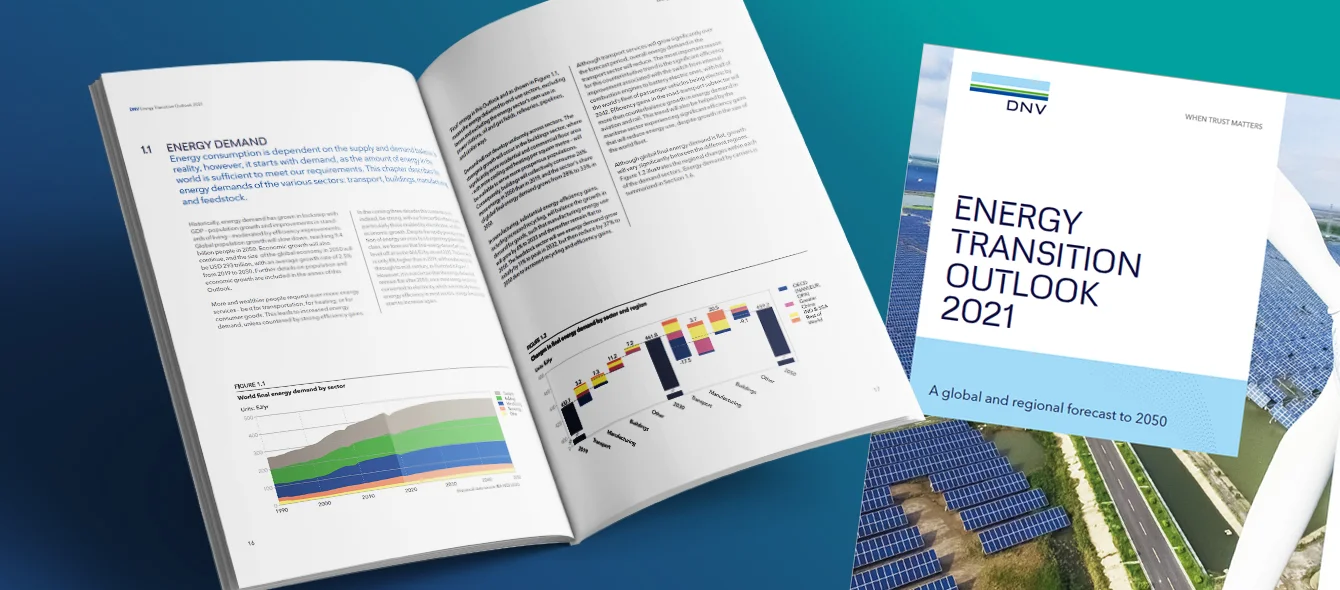The energy transition is making notable progress. As before, however, it isn’t unfolding fast enough to achieve the goals formulated in the Paris Climate Agreement. These are two of the major findings in the Energy Transition Outlook 2021 published by Norwegian risk manager DNV.
Corona aid packages
A year ago, DNV experts called on governments in their Energy Transition Outlook 2020 to take the coronavirus pandemic as an opportunity to give the energy transition an additional push. Countries around the globe spent several billion euros to protect their economies from the ramifications of the lockdowns.
DNV CEO Remi Eriksen finds that, however, too small a share of the outlay has gone into sustainable innovation and reducing greenhouse gas emissions: “Many pandemic aid packages largely focussed on maintaining certain sectors instead of transforming them.”
Efficiency gains have the biggest potential
To date, emission reductions have been achieved nearly exclusively through efficiency gains in electricity generation. DNV thus reiterates emphatically that “even if every kilowatt hour produced from here on out were ‘green,’ the world would miss the net-zero target by 2050.”
He believes that achieving this goal would require a major boost in investment in the electrification of further sectors and applications as well as an expansion of green hydrogen production. This would also drive down carbon dioxide emissions in sectors such as steel and transportation.
Moreover, the DNV authors are convinced that efficiency improvements in the use of energy are the most important tool when it comes to lowering greenhouse gas emissions. In the 2030s, efficiency enhancements should result in a slow decrease in the growth of demand for energy.
